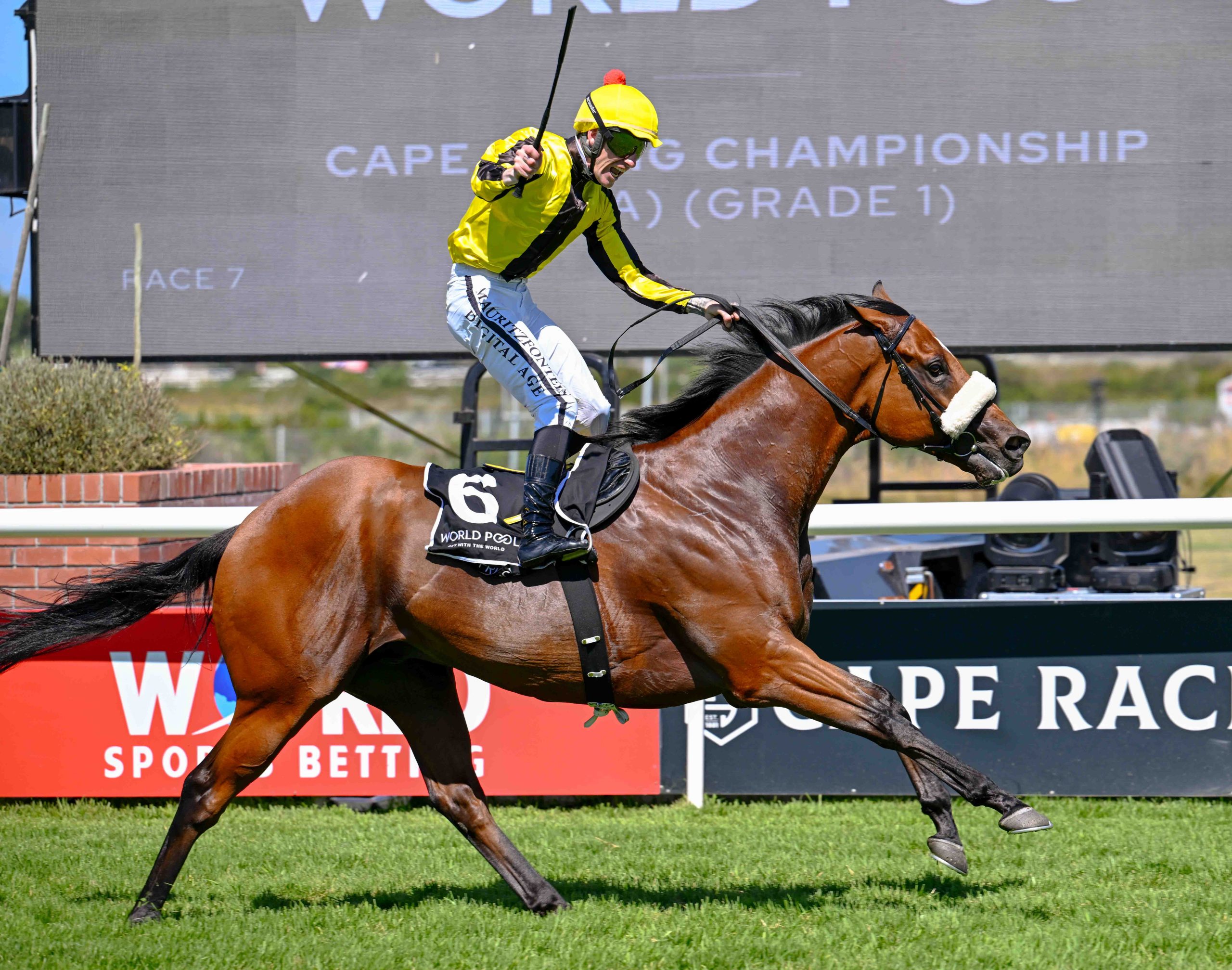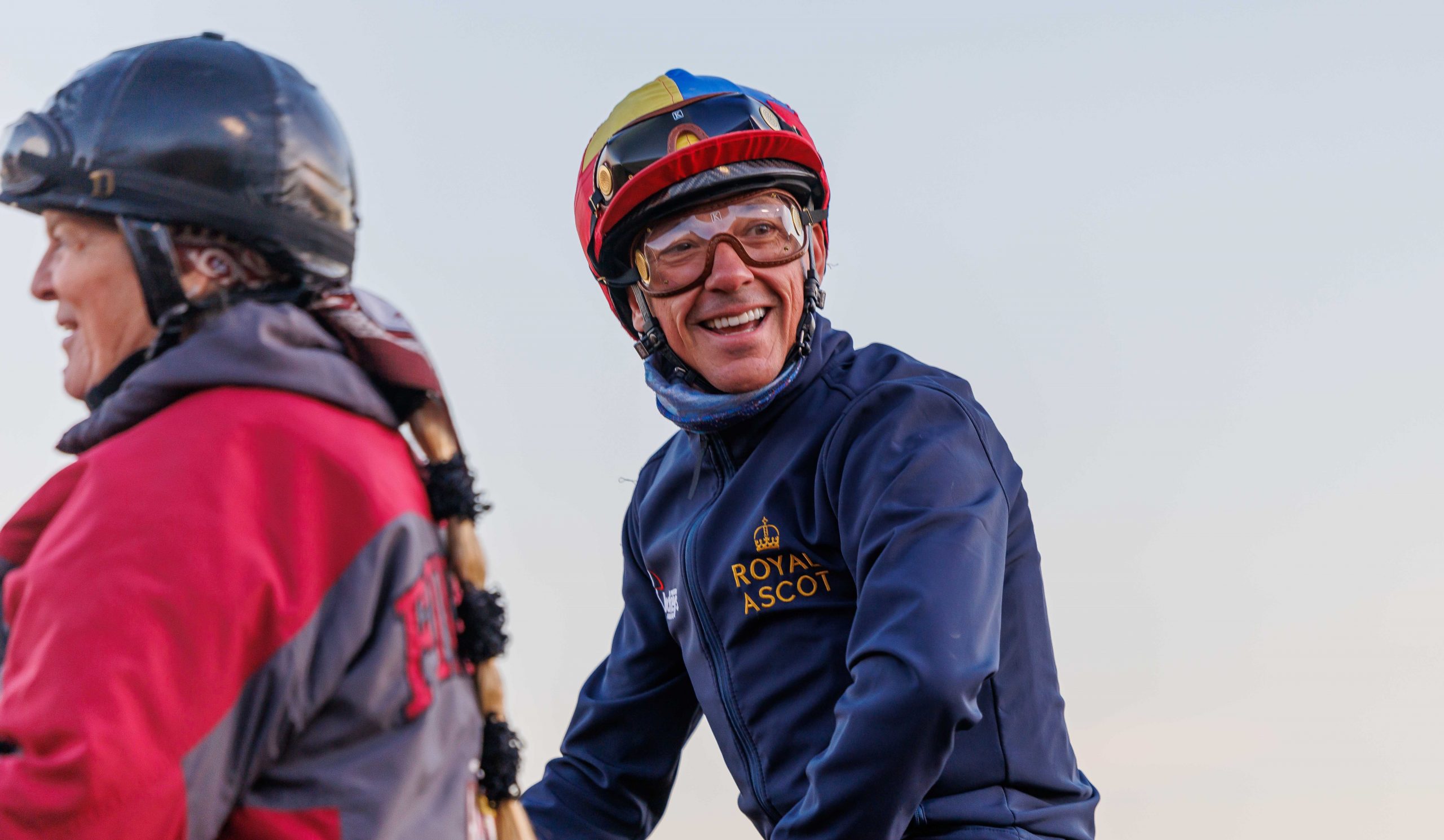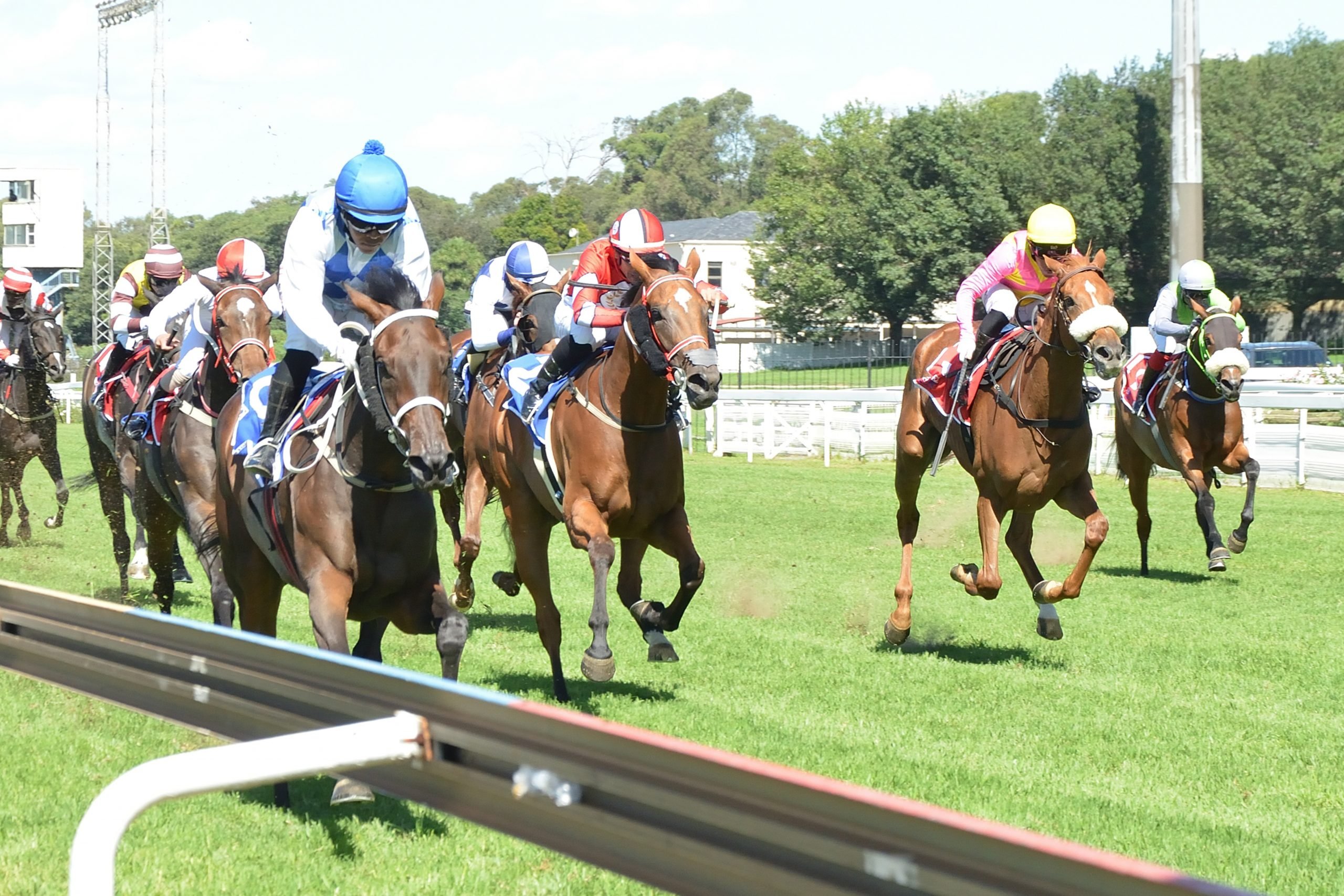I’m feeling brave, so am going to start my column (and no doubt lose a few friends) by saying that I watched last weekend’s Grand National. Well, eventually anyway (and my thanks to Youtube for the privilege as our Tellytrack folk didn’t feel it important or popular enough to warrant live coverage on the ‘home’ feed).
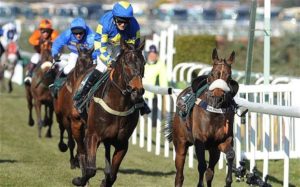
The Rainbow Hunter – 2nd last year (sort of!)
As you might be able to guess, I was a little narked, because I’d done a fair bit of reading up and research on the various runners and riders. I know all the basic stuff about the jumps and the course length and Captain Becher and all that jazz, but this was the first year I really had a vested interest. Tony McCoy was riding and I’d chatted to him a few months ago, so I wanted to see how he’d get on. Then there was Monbeg Dude, who’d ‘accidentally’ been bought by Mike Tindall and mates after a bit too much beer (which got him into hot water with wife Zara Philips). There was quirky favourite Teaforthree with pretty lady trainer Rebecca Curtis and The Rainbow Hunter, who’d finished second (sadly minus his rider) in last year’s event. And a whole heap more. I’d read all the stories and even watched some of them work (the internet is a marvel!), formed opinions and chosen favourites. I was INVOLVED. And being a paid up member of the bunny hugger brigade, that’s a pretty difficult thing for me to say.
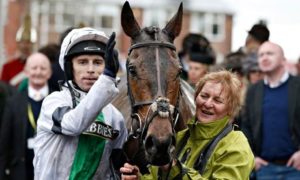
We did it! Pineau De Re & Leighton Aspinall
Anyway, it was a reasonably good National as these things go. A full field of 40 faced the starter for the 167th Aintree showpiece and it was won by 25-1 shot Pineau de Re, ridden by Leighton Aspell and trained by Dr Richard Newland. 18 runners completed the course (the second year it was run over the new ‘safety’ fences) and everyone got to go home in one piece. In fact, about the biggest drama of the meeting was the jockey protest over the false start debacle.
I thought that was pretty good news, so I posted a message on Facebook, which sparked an interesting and fairly lengthy discussion about the whole thing. Obviously there is no getting around the fact that horses do get killed and that’s pretty horrible, and yet, it is a fascinating event and remains a spectacle. Despite the number of changes to the course over the years, there are many who feel that more can and should be done (and plenty more who feel the whole thing should be done away with entirely). I’m glad that they’re making it safer (and that it seems to be working), and I’m glad that there are critics and detractors, because without them, those changes probably wouldn’t have happened. I’m not condoning or condemning. I’m just sitting back and trying to understand and make sense of it all. I understand why people want it banned. It’s harder to figure out why people want it to stay.
What’s the attraction?
In his piece ‘You can’t rationalise the Grand National’ Stephen Moss wrote in the Guardian “The Grand National is so named because it is a race for 40 horses over four and a half miles, in which they tackle 30 difficult obstacles. Shorten the race, change the obstacles or reduce the field, and it becomes a different race, in effect another very interesting staying handicap chase – but not the Grand National’. I’m rather inclined to agree with him. If you ran the Grand National over a smaller, shorter, easier course, then you’d take away everything that makes it different. And then there would be no point in having it at all.
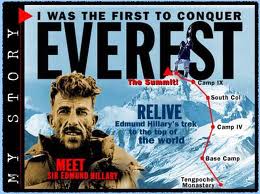
Sir Edmund Hillary
Which of course begs the question ‘why do we have it and why are people fighting so hard to keep it the way it is?’ And they are interesting questions. I suspect the reason people resist the changes and taking away the challenge is the same reason people would get annoyed if you said one could only climb half way up Everest, because getting to the top is too difficult. Because we’re inherently competitive. And the level of difficulty IS the point. People don’t want to wander up a hill, they want to climb a mountain. Runners don’t want to go round the block, they want to run the Comrades. As a competitor, you don’t just want to take part, you want to go to the Olympics. You want to touch gloves with the toughest competition there is and see how you measure up. It’s the same principle, except on horseback. Flat racing is the same – we don’t run to take part, we run to win. Because we want to get up to the next level and then we want to win there. Etc. Why do we have a Triple Crown? Or the Iron Man? Or swim to Robben Island and back? Or climb Everest? Or drive from Paris to Dakkar? Because it’s hard and not many can do it.
Some like it hard
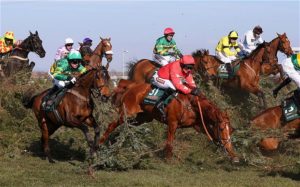
The Grand National – magic or mayhem?
People want things to be difficult to prove that they can do it. And to measure how good they are. It’s in our nature. Ever seen a kid being pushed on a swing? It doesn’t take long before they’re shouting “Come on! Higher! Faster!” We want to test where our limits lie. Sure, there are heaps of people content to go for Sunday strolls and country cycles and never give a moment’s thought to what their ability might be if they really tried. Those people make up most of life’s audience. Plenty of horses and riders do make it round several times, so it’s patently obvious that the National IS doable. It unfortunately just isn’t doable for everyone. But then the same can be said of most things in life. Including flat racing. How many horses died in that horrible Meydan Gold Cup last year?? And to be brutally honest, we break plenty of horses doing far more frivolous things and for far smaller return. Does that mean we shouldn’t do any of those either?
Of course, there is the very good argument that the horses don’t exactly get given a whole heap of choice in the matter, but then when do they ever? We make them carry us around, plough our lands and march off to war without giving it a moment’s thought. I’m fairly sure if horses had their way, there would be no saddles, bridles or riders. But if that were the case, there would probably be few horses too and I think that would be a shame. It’s a bit like having a car. We don’t buy them as museum pieces, we buy them because they are useful and they give us pleasure. People have horses as a means to an end. Fact.
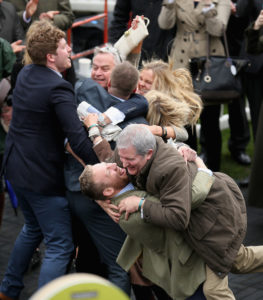
Joy! Pineau De Re connections
I do understand those who see it as cruel, but you could find any number of reasons to throw rocks at any particular horsey discipline and there are plenty of atrocities committed in the name of dressage, jumping, etc. But each discipline has its pinnacle event that is reserved for the very best, bravest, fastest and most talented and most normal people will look at that and think ‘my god, that’s NUTS!’ Fauresmith endurance ride is 200kms, the big international eventing tracks are terrifying, Puissance jumping is crazy high, top level dressage is enormously demanding and technical, top level racing demands top speed, top soundness and top stamina (depending on your choice of event). Wherever you have sport, you have various tiers of talent and ambition. And the thing that keeps it all going, is having that tiny top level, and horses and people who can perform there, to keep the rest of us in the lower ranks inspired to keep working and improving to inch our way closer. I don’t know what that level is like and I probably never will, but it’s the prospect that it exists and the vague promise that I COULD get there one day that keeps me going. The National is that for the jumps folks.
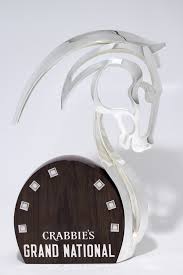
The ultimate prize?
No, I don’t want a National horse. But then I don’t want to ride the Argus, or run the Comrades or do Iron Man, or extreme diving, etc either. It’s not my thing. But I respect those who have the time, ability and passion to have a go, if for no other reason that it gives me the opportunity to marvel at excellence. As Blake once said “Great things are done when men and mountains meet.”
I’m not necessarily in favour of the National, but I do sort of like the “mad dogs and Englishman’ idea of having something stupidly difficult just for the sake of it. I could never ride the National and I probably wouldn’t want to. But I respect the right of those that can to have a go.
Of course, everything comes at a price. It’s right there in front of us, every time we leave the house. If we want something, it’s going to cost us something to get it. And the more we want it, the more we’re prepared to pay for it. The prize money for this year’s National was 1 million Great British Pounds. Is that worth a horse or even a jockey’s life? Not for me and certainly not for my horses, but it seems there are still people who feel that the answer is yes.






